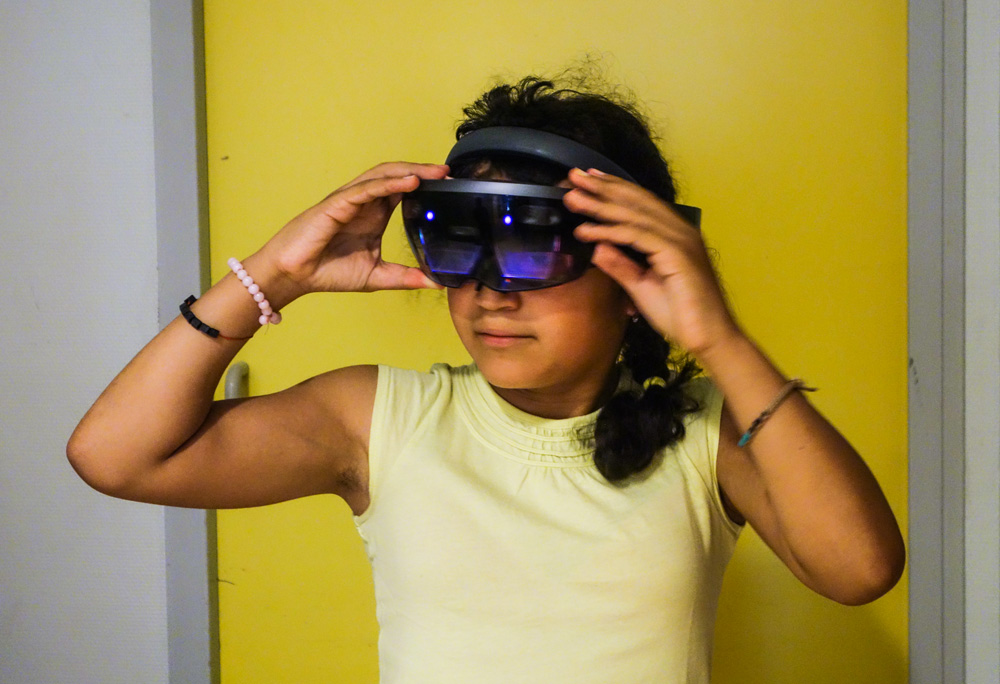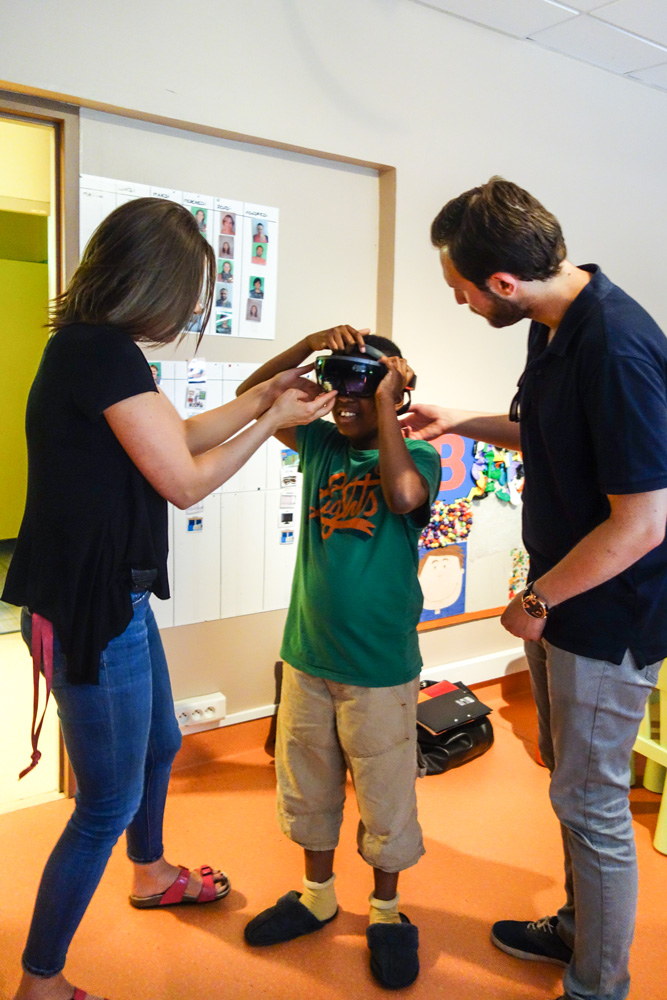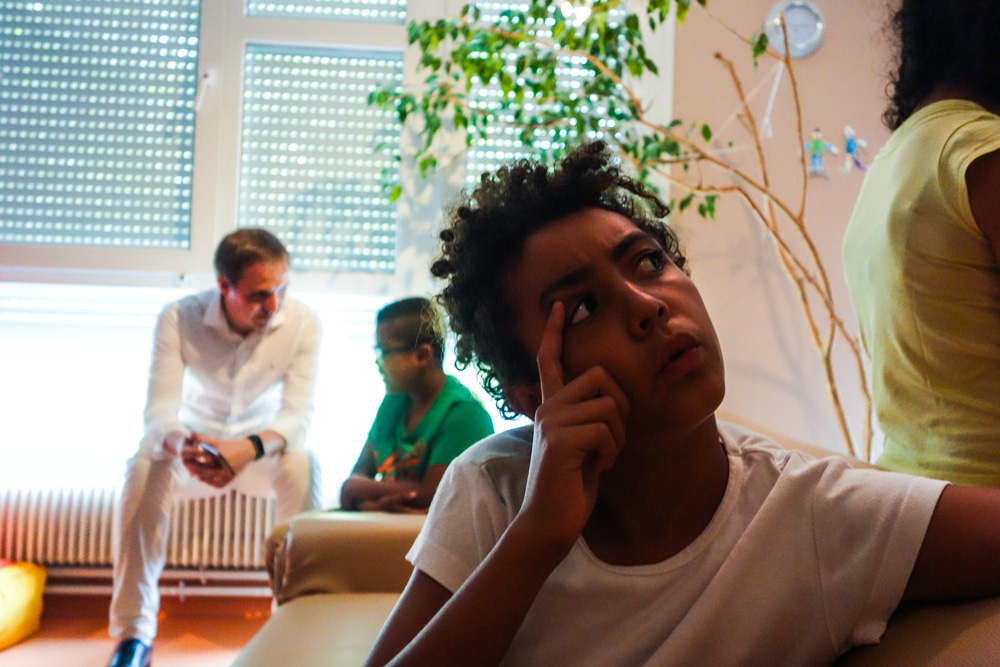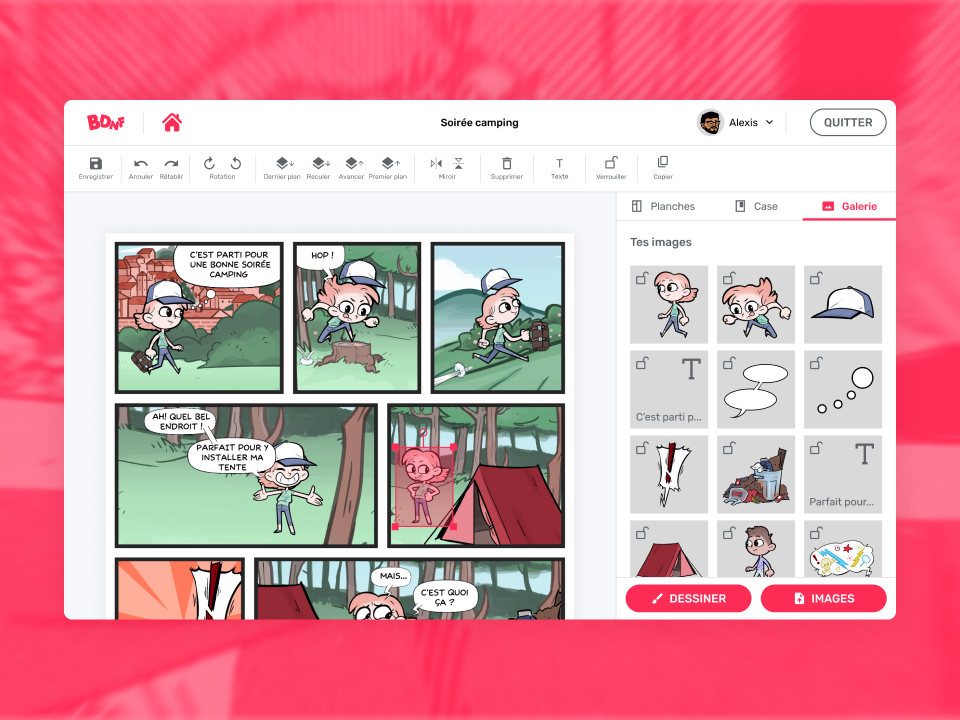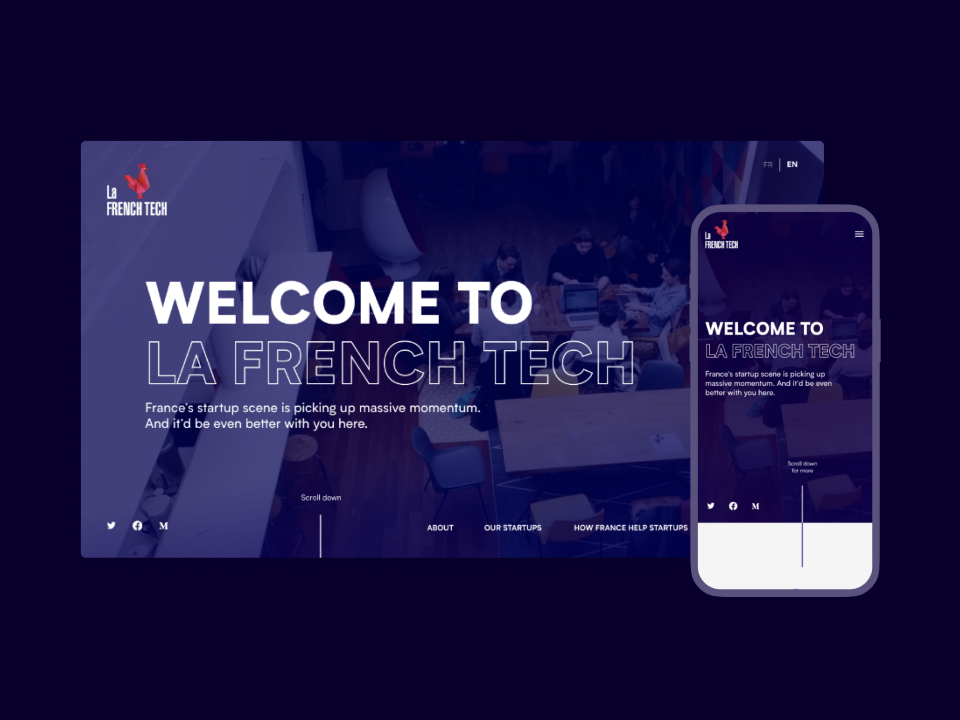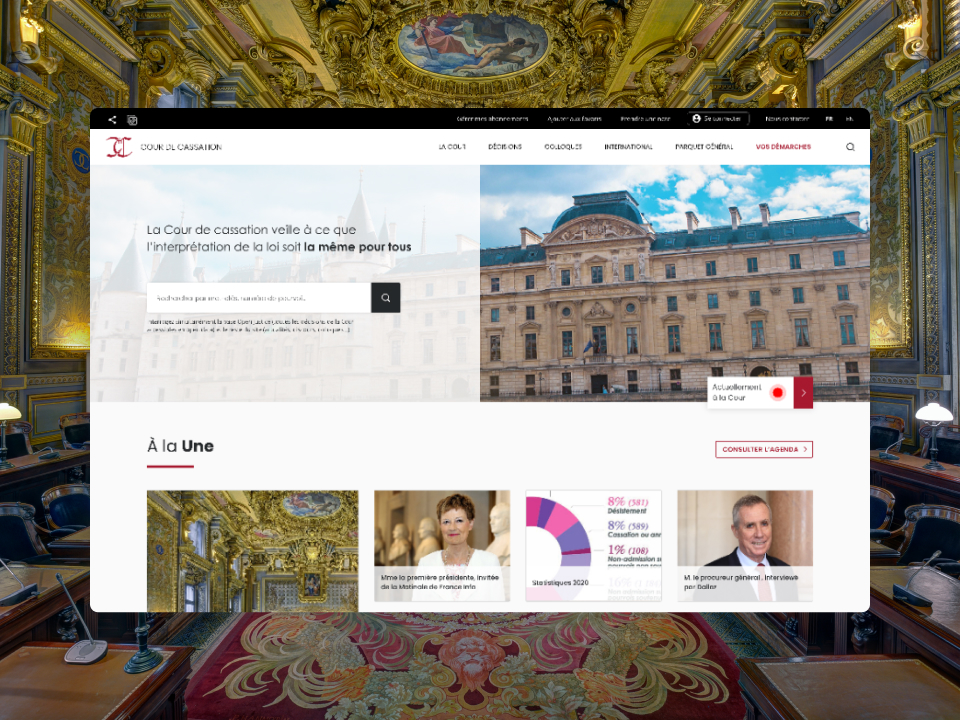Hol’Autisme Mixed reality training
Hol'Autisme
Research project, development, innovation
We are developing a catalogue of applications in mixed reality and a monitoring platform to help children affected by issues on the autistic spectrum to improve their social capabilities. Our project is winner of the Concours French IOT 2017.
Discover the websiteThe challenge
Autism is a serious and early development issue affecting 1% to 2% of the world’s population, that is, 75 million to 150 million people. In France, 160 000 children are affected by issues from the autistic spectrum. The three main problems defining autism are: deficiencies in establishing social connections; limited interests and stereotyping; verbal and non-verbal communication deficiencies. The goal is for young autistic people to be able to improve their social skills so that they can fit better in society and at school.
The solution offered
Hol’Autisme introduces a technological breakthrough in the field of health and education, by offering the first catalogue of mixed-reality applications to improve the social skills of children with autism. If the results are conclusive, the scientific understanding of autism could be improved and the inclusion at school and in society of young people suffering from issues on the autistic spectrum will be facilitated.
Those responsible for the project
We are building the project in collaboration with specialist scientific officers for the treatment of issues on the autistic spectrum with new technologies (heightened and virtual reality, Kinect, robotics), education specialists, and the medical staff at a hospital centre that welcomes young people with autism.
Applications offering social scenarios in mixed reality
We are going to create a catalogue of applications in mixed reality in order to recreate scenes from daily life which may pose difficulties to young people with autism. Thus, with regular sessions, the child will progressively learn to identify social codes, immerse him- or herself in public places, and acquire autonomy. The main focus of these applications is to enable young people with autism to control these situations, which can otherwise be extremely complex in a real environment.
A control and monitoring platform for training
Based on the experimental results collected by the sensors in the glasses, depending on the trainee profiles and the design briefs established by the scientific officers, our data analysts and developers will create advanced statistical tools. This will further aid monitoring, data traceability and future development.
- Development of design briefs for the environments of the mixed reality applications
- Development of design briefs for the control and monitoring platform
- Implementation of the research protocol with the children
- Development of the application prototypes and the control and information-analysis platform
- Functional versions of the applications and the platform
- Positioning of the mixed reality training experience with a group of autistic children in the hospital
- Extensive statistical processing applied to the information collected by the tool’s sensors and conclusion of the experience
Target objectives
Economic objectives
We want to improve the care of young people with autism, in hospitals and specialist institutions, and to alleviate the financial cost faced by families. We want to encourage the education of young people with autism as soon as they have acquired the necessary social skills and sufficient autonomy. Finally, we aim to encourage the social inclusion of young people with autism, whether or not they suffer from an intellectual disability.
Scientific objectives
Our ambition is to create a new approach to help children to identify and imitate the social codes that they aren’t mastering, to be mobile in noisy locations that make them anxious and inhibit them, and to help them acquire autonomy. We wager that the skills acquired with mixed reality will be transferable into the daily lives of the young people with autism, and will help improve it in a significant and sustainable manner.
The technology used
- Hololens
- Unity
- Visual 3D
- Audacity
- 3D Max
- Photoshop
- Data analyse
- Advanced statistics
Thomas
Director of Innovation
At Actimage, my role is to ensure the coordination of RDI projects such as Hol'Autisme. It is a real challenge to federate teams and a pride to contribute each day to an innovative solution that can be used.
